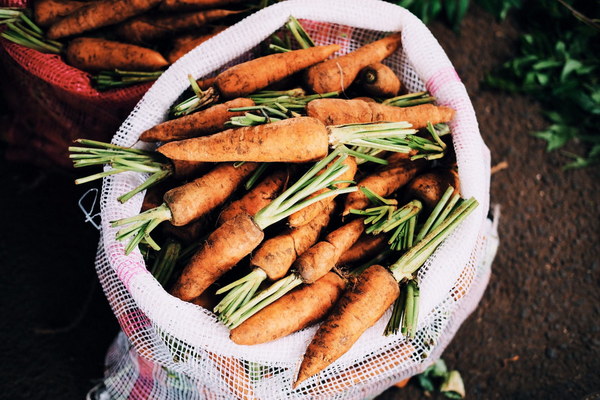Breathe Easy This Fall Discover the Best Herbs for Lung Clearing and Phlegm Dissolving
As the leaves begin to turn and the air turns crisp, autumn ushers in a season that can be challenging for our respiratory systems. The cooler temperatures and drier air can lead to congestion, coughs, and an accumulation of phlegm in the lungs. To combat these fall-related respiratory issues, traditional medicine offers a wealth of natural remedies that can help clear the lungs and dissolve phlegm. Here are some of the best herbs to consider for lung clearing and phlegm dissolution during the autumn months.

1. Elderberry (Sambucus nigra)
Elderberry is a well-known herbal remedy for colds and flu, but it also has properties that can help clear the lungs and dissolve mucus. The berries contain compounds that can reduce inflammation and act as a natural expectorant, making it easier to cough up phlegm. Elderberry syrup or tea can be taken regularly throughout the fall to support respiratory health.
2. Mullein (Verbascum thapsus)
Mullein is a lung-soothing herb that has been used traditionally to treat respiratory conditions. Its leaves can be infused in boiling water to create a soothing tea that helps to relax the bronchial muscles and reduce inflammation. Mullein also has expectorant properties, which can help to expel mucus from the lungs.
3. Thyme (Thymus vulgaris)
Thyme is a flavorful herb that also has powerful medicinal properties. The essential oils in thyme can be inhaled or added to a steam inhalation to open up the airways and reduce inflammation. Thyme can also be taken as a tea to act as an expectorant and help break down mucus, making it easier to expel from the lungs.
4. Licorice (Glycyrrhiza uralensis)
Licorice root has been used in traditional Chinese medicine for centuries to treat respiratory disorders. It contains compounds that have anti-inflammatory and expectorant properties. Licorice root can be brewed into a tea or taken in capsule form to help clear the lungs and dissolve phlegm.
5. Eucalyptus (Eucalyptus globulus)
Eucalyptus is a well-loved herb for respiratory health due to its potent essential oil. When inhaled, eucalyptus oil can help to open up the airways and reduce inflammation. It can be added to a diffuser or used in a steam inhalation to provide relief from congestion and coughs.
6. Peppermint (Mentha × piperita)
Peppermint is another herb with a long history of use in respiratory care. Its menthol content can help to relax the muscles of the airways, reducing inflammation and congestion. Peppermint tea can be a soothing drink for those suffering from autumnal respiratory discomforts.
7. Ginger (Zingiber officinale)
Ginger is a versatile herb that not only adds flavor to dishes but also has medicinal benefits. It can help to reduce inflammation and improve circulation, which can aid in lung clearing and phlegm dissolution. Ginger tea or ginger ale can be consumed to support respiratory health during the fall.
Incorporating these herbs into your fall wellness routine can help to keep your respiratory system in good shape. Whether you choose to make herbal teas, take tinctures, or use essential oils, it's important to consult with a healthcare provider before starting any new herbal regimen. They can ensure that the herbs you choose are safe and appropriate for your individual health needs.
Remember that while herbs can be a valuable part of your respiratory care, they should not replace medical treatment for severe respiratory conditions. If you have a chronic lung condition or experience persistent respiratory symptoms, it's essential to seek professional medical advice.
By embracing the natural lung-clearing and phlegm-dissolving properties of these herbs, you can enjoy a more comfortable autumn season, breathing easy and free from the discomforts of respiratory congestion.









